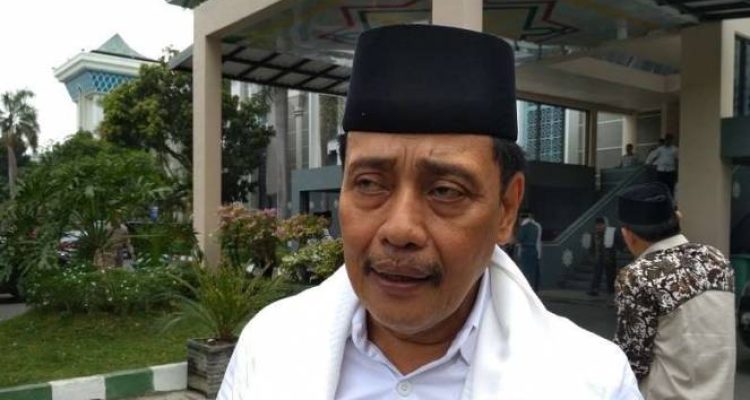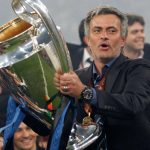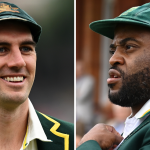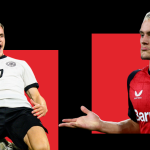The life, loss and legacy of Kevin Campbell
Kevin Campbell was the all-action, hard-grafting centre-forward who delighted football fans with great goals across a 19-year career at the top of the game.
Affectionately known as Super Kev at Arsenal, Nottingham Forest and Everton, he developed a reputation as one of the hardest-to-handle forwards in the country, while his beaming smile and joyous celebrations made him one of English football's most popular characters.
"I think if you ask anyone who's ever been in the presence of him, they'll always remember him and speak about how good a person he was," says Campbell's son Tyrese, 25, who plays as a striker for Sheffield United. "He carried the whole room – you knew when he was in there because you could probably hear him.
"He was a respectful, happy, positive person. You could even say almost too good for this Earth. A proper angel sent from heaven."
In 2024 Kevin Campbell's life was tragically cut short after he suffered a serious illness, and an investigation was launched into concerns over his care.
After his inquest concluded on Monday, this is the story of Campbell's life, loss and legacy, told by those who knew him best.
The Life, Loss and Legacy of Kevin Campbell
Campbell will eventually raise his own family in the north-west, but is born in south London in 1970, the second youngest of seven children in a family with Jamaican roots.
"We were brought up by a single mother so resources were extremely tight," Campbell's younger sister Lorna says. "We used to play tennis against a back wall because we couldn't afford to hire a court. Kevin wanted to be in different football teams and it was a struggle for my mother to pay all the subs.
"We had three big brothers and he was never afraid to play football with them and their friends – he would just take them on. And this was on the mean streets of Brixton. That's when he came alive."
Kevin and his sister Lorna grew up playing sport together on the streets of Brixton
Campbell begins to feel unwell. His symptoms are generic – tiredness, loss of appetite, a decrease in weight.
Despite insisting that family and friends need not worry, in the following months he has multiple stays in hospitals in Greater Manchester. His appearance changes as he becomes visibly weaker. Doctors are unsure what is causing Campbell's symptoms.
According to an eventual inquest, he is discharged in March 2024 after "responding well to treatment".
World Football: The life, loss and legacy of Kevin Campbell
'He carried a whole room' – Family & friends pay tribute to Campbell
Campbell's natural talent means he is scouted by multiple professional clubs in London, and he chooses to sign a youth deal at Arsenal.
"When I joined Arsenal at 16, he was a young kid, about nine," says Paul Davis, a midfielder with the Gunners between 1980 and 1995. "That's when I started to hear his name – people saying 'this guy is scoring plenty of goals'.
"Then he came up to train with the first team. We see this big guy – six foot one, 17, wide, his legs are so thick and chunky. And everyone's thinking, 'Wow, no wonder he's scoring goals'. He was just knocking everybody over. We had people like Kenny Sansom, Viv Anderson – senior internationals – and when they saw Kevin coming over they would be like 'oh no' because they knew he would embarrass them in training.
"When I first came through I was the only black player at Arsenal. You've got to remember the culture of the country meant it was OK to tell off-colour jokes. So if you had somebody that was in the struggle with you, then it made it easier.
"Kevin would always challenge things in a way that didn't end up with a fight. He was able to do it and they thought, 'actually, should I be saying this, or should I be doing this?'"
Campbell was scouted by teams across London, but had supported Arsenal since his early childhood, and joined the Gunners as a teenager
Andy Cole, the fourth top goalscorer in Premier League history, begins playing alongside Campbell when both are coming through the youth ranks at Arsenal. The pair combine in a successful FA Youth Cup campaign, and become friends.
"Unbelievable strength and power," Cole says of Campbell's style. "He was quick as well. And to be fair Kevin didn't have to be aggressive, because the size of him meant people feared him anyway. I think everyone enjoyed playing with him due to the fact that he worked so hard for his team."
After making his first-team debut in 1988, Campbell wins two league titles as well as the FA Cup, League Cup, and European Cup Winners' Cup in a seven-year spell with the Gunners in which his joyous goal celebrations and gregarious character make him a fan favourite.
"Kevin had a larger than life personality," Cole says. "He could walk into a room and light it up – life and soul of the party.
"I remember one night Kevin took me out, we had a good laugh. Unfortunately for me I was in the next day and Kevin had the day off. We were doing stand runs at Highbury. Man, I couldn't raise a gallop.
"I remember [Arsenal youth-team coach] Pat Rice saw Kevin and said, 'Kevin! Did you take Coley out last night?' Kevin was like 'Pfft, nah, I don't know what you're talking about, Pat.' I was just laughing… if Pat ever knew."
Campbell's condition worsens and he begins a long stay in Manchester Royal Infirmary. He has lost over half his body weight.
Friends and family become aware that his illness is more serious than first believed.
His friend Jason Lavelle says: "When I went to see him, I met his brothers beforehand and they did prep me for the fact that he had lost a lot of weight, that he wouldn't look the same as what I remember him as. And that was the case.
"In my mind's mind I was still thinking 'this is Kevin, Super Kevin, and he is seriously ill but he is still going to pull through this."
Cole explains: "I got a phone call from someone saying 'Coles, just letting you know that Kevin's not very well'.
"I knew mentally I couldn't see him like that. I just… I couldn't bring myself to see Kev in that state after knowing him being fit, strong."
Eventually, the cause of Campbell's illness is discovered. He is suffering from infective endocarditis, an infection in the inner lining of the heart or its valves which affects one in 30,000 people in the UK.
"It's often very difficult to diagnose," says Dr Debbie Harrington, consultant aortic surgeon at Liverpool Heart and Chest Hospital.
"Often patients will present with very non-specific symptoms that have gone on for months. They won't necessarily be seen by a specialist in cardiology who is going to think of the right diagnosis."
"When we have problems where patients sadly don't make it, often it's because they get to us too late – that is usually the reason why patients don't survive.
"Overall in the general medical community I would say there is probably a lack of awareness of infective endocarditis – we know that it is actually on the increase. Definitely awareness is a big, big factor."
After leaving Arsenal to play for Nottingham Forest in 1995, striking up a lethal striker partnership with Pierre van Hooijdonk, Campbell spends a brief spell with Trabzonspor in Turkey.
But Campbell is racially abused by the club's president after signing, and seven months later moves back to the Premier League, joining Everton. There, he becomes the club's first black captain, scores crucial goals to keep the Toffees in the top flight, and mentors a young Wayne Rooney.
"He was an inspiration, really," Rooney says. "Everton were struggling for a few years and he galvanised the whole club.
Campbell's influence on a young Rooney had a marked impact
"He helped me a lot – always talking to me throughout the game. As a young player you're still learning, figuring out how to try and play the game, how to be in the right positions.
"You see him play, you see his strengths, but actually playing with him he was a lot cleverer than I thought he was. Back then it was big man, small man up front. Obviously he was the big man and I was running off him – I did a lot of running for him!"
Campbell sets up his own record label, 2 Wikid, and after playing for West Brom and Cardiff, he retires in 2007, embarking on a career in punditry and broadcasting.
Infective endocarditis can be treated with antibiotics if diagnosed early. But the struggle for diagnosis in Campbell's case means the infection has worsened, leading to kidney issues, a stroke and eventually fatal multi-organ failure. He dies on 15 June.
"I was the one that got the call from the hospital to say that Kevin wasn't going to make it, that he was having difficulty breathing," Lorna says. "That was at five o'clock in the morning. Then it was my job to call the rest of the family and tell everybody the news. Those early days when Kevin passed were very, very difficult."
Kevin coached his sons Kyle (left) and Tyrese (right), before both went on to become footballers
Tyrese says: "Without saying it to each other, we knew it was coming. I'd say we prepared. We're our Dad's kids, so we've got his strength. We were relieved eventually when the day did come – he wasn't in pain any more and we were at peace with that. I knew he wouldn't have wanted to be that way and he could just rest."
Campbell's second son Kyle plays as a striker for Bootle FC.
"It's hard on the mind as well when you see someone so fit, so powerful, so loving, and you're looking at him like 'that's not him'," he says. "We never really lied to each other, never said 'he's going to come back perfect', because sometimes in life, it doesn't go your way."
News of Campbell's death is made public, shocking fans and former team-mates.
Rooney says: "It was a massive loss for everyone in football, but for me personally obviously playing with him and knowing him as a person, I was devastated."
Campbell's popularity among team-mates was strong at every club he played for
Manchester NHS Foundation Trust announces an investigation into the quality of care Campbell received in the run-up to his death. It is classed as a Level 5 patient safety incident. At the same time, an inquest is opened at Manchester Coroner's Court.
"When someone passes away you just want to be able to grieve knowing that it's happened, that it's disappointing it's happened, but it ends there," Cole says. "When you start hearing that there could possibly be this, possibly that, that just hurts even more."
For Campbell's sons, the investigation is rendered unimportant by the scale of their loss.
"It can do whatever, but it's not going to bring him back, so I don't see the point in me investing my effort and energy," Tyrese says. "For me, it wasn't really going to change anything, so there's not much point."
The class is later reduced to a Level 2 patient safety incident, and the investigation determines that Campbell's death was "possibly avoidable but not very likely".
The inquest, overseen by the coroner and including evidence given by two doctors involved in Campbell's care,finds that he died of natural causesand adds that "missed opportunities" to correctly diagnose Campbell did "not more than minimally contribute to his death on the balance of probabilities".
The scrutiny over Campbell's death and the handling of his illness comes against a backdrop of wider concern about standards of care in the NHS.
"I think because of the significant financial trouble the NHS is in we have seen a marked decline in the quality of patient care," says Dr Luke Munford, senior lecturer in health economics at the University of Manchester.
"The NHS recommends that 90% of cardiac patients are seen within an 18-week timeframe. In Manchester at the moment that is 54%."
"Manchester receives about £2.6bn per year, which sounds like a lot, but when you divide that through by the population it serves it actually isn't a great deal of money at all.
"England does suffer from a postcode lottery. People in the north, even if they have substantial personal wealth, are at the mercy of the local health and care system.
"If we look at budget cuts, austerity hit areas like Manchester much worse than areas in the south-east of England." Dr Munford adds that he is concerned there would be more examples of cases where complex illnesses go undiagnosed.
A Department of Health and Social Care spokesperson tells the BBC: "Kevin Campbell was a huge inspiration, and our deepest sympathies are with his family and friends.
"This government is overhauling our NHS so it works for all patients, no matter where they live and our fundamental shift from sickness to prevention will be vital in tackling health inequalities, making people healthier and reducing pressure on the NHS.
"Under our Plan for Change, we are also prioritising patient safety and investing an extra £26 billion in the NHS to cut waiting lists and save lives."
A spokesperson for Manchester University NHS Foundation Trust says: "We once again offer our deep condolences to the family and friends of Mr Campbell for their very great loss. It is clear from the inquest that everyone did their best to care for him, and there is no evidence that Mr Campbell's death could have been avoided.
"We are committed to constantly improving the quality of care we provide to our patients. Whilst there are aspects of Mr Campbell's care that could have been improved, the Coroner has found that these did not more than minimally contribute to his sad death. We have already taken learning from Mr Campbell's care and made improvements across the Trust, and we are committed to ongoing learning and improvement for all our patients."
Campbell undertook regular charitable work during his life, and following his death his family sets up a foundation in his name which aims to improve the lives of young people by supporting them with funding, projects and activities.
"The Kevin Campbell Foundation is an extension of Kevin," Lorna says. "It allows us to celebrate Kevin as the footballer, and the amazing achievements he managed over 20 years as a footballer, but it also allows us to discover Kevin the man."
Cole and Davis are among the Foundation's ambassadors.
"For someone who put themselves out for me so much when I was younger, it's the least of things I could have done," Cole says. "He was a selfless individual, always prepared to try and help.
Everton and Arsenal fans paid tribute to Campbell during the Premier League game between the clubs at Goodison Park on 5 April
The wisdom Campbell imparted on his sons will continue to have an impact on their careers.
"He always told us how proud he was of us and how well we're doing," says Tyrese. "When he was ill it was 'just keep going, keep doing what we're doing, and keep being you'."
"I've had players coming up to me saying 'sorry to hear about your dad', 'you're doing really well' and stuff. It's nice because he was so loved and so respected."
For Cole, the loss of Campbell has hit hard, but the memories they shared together are a great comfort.
"As we say, we're not here for a long time, we're here for a good time," Cole beams. "And I can sit here and say – Kevin had a good time. He definitely had a good time."














